
May 20, 2020 | Staying on Top, UpstateVibe365
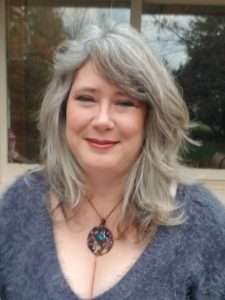
Laurie Bowen, Communications Director, Purple Heart Homes, Golden Corner Chapter
by Laurie Bowen, Communications Director, Purple Heart Homes, Golden Corner Chapter
Purple Heart Homes USA is a 501(c)3 public charity that was founded in 2008 by John Gallina and the late Dale Beatty, two combat wounded veterans. Purple Heart Homes is dedicated to providing housing solutions for service-connected disabled and aging veterans that are substantial in function, design, and quality fit to welcome home the fighting men and women of America. Headquartered in Statesville, NC, Purple Heart Homes USA established its first chapter in Upstate South Carolina in 2013 to better service local veterans. The Golden Corner Chapter serves veterans in Anderson, Pickens and Oconee counties, but we have traveled further when the need requires. Our mission includes providing veterans with free services such as building decks and ramps, widening doorways, renovating bathrooms with walk-in showers, installing grab bars and other home improvements that address safety and accessibility and provide veterans with peace of mind. As of May 2020, we have completed 85 projects and are hoping to reach our 100th veteran served by the end of this year.
Covid-19 has adversely impacted our ability to service local veterans. Many of our 100% volunteer workforce and the veterans we serve are aging and/or have underlying health concerns that make them vulnerable. As a result, we have suspended much of our operations that take us into veterans’ homes during what is typically our busiest time of year. When we are required to enter veterans’ homes, our volunteers wear masks and practice social distancing. We are also limiting our work on veterans’ homes to outdoor projects as much as possible. We are using this time to take new applications and perform project and budgetary planning so that we can resume work when conditions are more favorable. Of the 11 open projects, 5 are in various stages of completion. The remaining 6 will require volunteer teams to have prolonged access to veterans’ homes and are on hold.
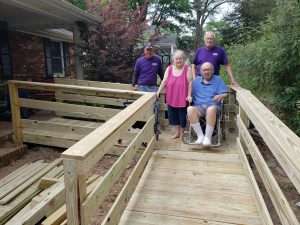 Our volunteers have found additional ways to give back during the outbreak. We have raised funds and collected food for veterans who were affected by the tornado in Oconee County and others who lost their jobs due to COVID-19 pandemic. Our Chapter Communications Director, Laurie Bowen, has been sewing masks for veterans, corrections officers, first responders and healthcare workers free of charge. So far, she has donated over 500 masks and more are available. She plans to distribute additional masks to veterans in need through local VA organizations. We have received donations to our chapter from mask recipients, and many have donated to purchase more materials for additional masks. We have also donated N95 masks to volunteers working the Oconee County tornado recovery efforts.
Our volunteers have found additional ways to give back during the outbreak. We have raised funds and collected food for veterans who were affected by the tornado in Oconee County and others who lost their jobs due to COVID-19 pandemic. Our Chapter Communications Director, Laurie Bowen, has been sewing masks for veterans, corrections officers, first responders and healthcare workers free of charge. So far, she has donated over 500 masks and more are available. She plans to distribute additional masks to veterans in need through local VA organizations. We have received donations to our chapter from mask recipients, and many have donated to purchase more materials for additional masks. We have also donated N95 masks to volunteers working the Oconee County tornado recovery efforts.
COVID-19 has also limited the ability to raise the funds needed to purchase materials and services for our veteran projects. With 94% of all funding going directly to veteran projects, we rely on the generosity of individuals and local philanthropic organizations who host fundraising events or provide proceeds from thrift stores. The Coronavirus has forced the cancellation or postponement of fundraising events and temporarily shut down retail stores, impacting 2020 revenue. In this great time of need, many local charities are competing for limited resources to carry out our missions.
We are committed to insuring veterans get the help they need to make their homes safe and accessible one home at a time. For more information about volunteering in your area or to file an application, please visit our website.
We are accepting donations Amazon Smile, Facebook and Purple Heart Homes USA website. The Purple Heart Homes Golden Corner Chapter has achieved Guidestar’s Platinum level for transparency in 2019 and 2020.

May 20, 2020 | Staying on Top, UpstateVibe365
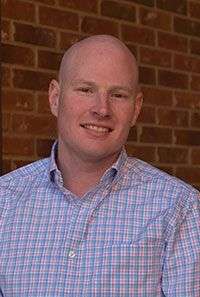
Nate Moore, Director of Community Engagement, Upstate Warrior Solution
by Nate Moore, Director of Community Engagement, Upstate Warrior Solution & U.S. Marine Corps, Retired
“I’m living two paychecks behind right now,” local veteran Chris W. said. Chris was medically separated from the U.S. Marine Corps in 1979 and has spent the last 40 years dealing with the ups and downs of readjusting to life in the “civilian world.” An unexpected move to Greenville in late 2019 wiped out his savings and made it difficult to pay the high gas bills from January and February. When COVID-19 hit in early March, his financial situation worsened. Because Chris is at a high-risk for COVID-19, he could no longer take public transportation or have people drive him without risking his health. He had to purchase a car to buy groceries and go to the Asheville VA for medical appointments.
The VA referred Chris to Upstate Warrior Solution (UWS) in April. The UWS team walked him through the application process for their COVID-19 Emergency Resource Fund. This is a $50,000 relief fund provided in partnership with the Premier Foundation in Greer, South Carolina. Shortly after he sent in his application, Chris was approved for rent and utility assistance so he could catch up on his bills. “I’m grateful,” Chris wrote to Upstate Warrior Solution. “The help I received fixed two main issues. Since resources are in short supply, the timing was perfect. Thank you to all concerned.”
Many veterans and their families, like Chris, are experiencing new difficulties due to circumstances brought about by COVID-19. Foreseeing this need, Upstate Warrior Solution stayed committed to serving our warrior community even when the pandemic brought the world to a halt in March. This commitment to continue working was conveyed in a letter sent out by UWS Chairman of the Board Mastin Robeson and President Charlie Hall, which said we would contact the all roughly 7,300 Upstate warriors and their families and maintain close contact with our network of community partners.
As the COVID-19 pandemic developed, so did the parameters of how our team continued to serve veterans, service members, first responders, and their families. First, the four offices were closed to walk-ins to reduce the exposure to the virus. Warriors could still come in if they made an appointment. Next, due to the social distancing rules, most of our staff started working remotely. To continue to answer phones and serve warriors who came into our offices, the leadership team and some staff volunteered to come in on specific days so there would always be someone in the offices.
Since March 16, the UWS team has contacted over 2,200 veterans across the Upstate to assess any needs they have, especially those related to the virus. Out of the 304 cases our team has worked over the past two months, 21% have been employment-related. Family services and housing have also been areas of need, comprising 16% and 12% of our case work, respectively. Our outreach was not limited to existing contacts. From March to April, we connected with 208 new veterans and 39 family members.
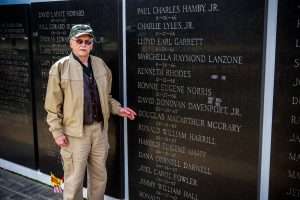 To date, UWS has awarded a total of $6,235 to eight applicants for the emergency relief fund through Premier Foundation. These funds have provided direct payment of mortgages, utilities, and car repairs for veterans who have been furloughed or are experiencing financial hardship due to COVID-19. 100% of warriors who have applied for the relief fund have received assistance. In addition to our warrior outreach, we have connected with nearly 300 community partners and 650 supporters, assuring them of our continued engagement during this time
To date, UWS has awarded a total of $6,235 to eight applicants for the emergency relief fund through Premier Foundation. These funds have provided direct payment of mortgages, utilities, and car repairs for veterans who have been furloughed or are experiencing financial hardship due to COVID-19. 100% of warriors who have applied for the relief fund have received assistance. In addition to our warrior outreach, we have connected with nearly 300 community partners and 650 supporters, assuring them of our continued engagement during this time
To further serve our warriors during the pandemic, we participated in Giving Tuesday Now, a global day of giving and unity created as an emergency response to COVID-19, on May 5. Our team set a goal to raise $5,000 to support our warriors and provide mirth during a difficult time. We set monetary benchmarks. Once the donations hit those benchmarks, our directors completed a challenge or two to engage our community on Facebook and Instagram. We had a blast as our leaders participated in the ice bucket challenge, a soda can crushing contest, and a surprise appearance from a large pink bunny, resembling Ralphie from “A Christmas Story.” We finished the day by egging our president then finishing him off with well thrown water balloons. By the end of the week, we were noticed by the community and raised a total of $27,600!
Our team has learned the power of perseverance during the COVID-19 shutdown. As our staff and volunteers who are veterans know all too well, staying dedicated to the mission during challenging circumstances requires teamwork and thinking outside the box. We have benefited as a team over the last several months, learning more about each other and how we can work more effectively and efficiently.
I am thankful to be a successfully transitioned veteran, living in Upstate SC and able to assist my brothers and sisters who have served our country in uniform. I am also incredibly thankful for all our dedicated community partners who have come alongside UWS as a “combined arms” team!

May 19, 2020 | Staying on Top, UpstateVibe365
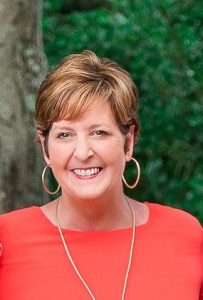
Catriona Carlisle, Executive Director, Meals on Wheels of Greenville
by Catriona Carlisle, Executive Director, Meals on Wheels of Greenville
Meals on Wheels of Greenville continues to serve nearly 1,900 clients each week during the COVID-19 pandemic by implementing and practicing health and safety protocols for clients, volunteers, and staff. These protocols include a new drive-thru meal pickup service for delivery volunteers, limiting the number of volunteers in the office at each time, providing masks and gloves to all volunteers, and recommending proper hand cleaning in between meal deliveries. Additionally, volunteers are asked to follow new contactless delivery protocols, which include placing meal deliveries on a porch surface or door knob, ringing the doorbell or knocking to notify the client they have arrived, stepping back at least 6 feet and ensuring the client receives their meals. The unwavering support of the Greenville community has ensured that these protocols are followed and have kept many involved in our mission healthy and allows them to continue to serve. We are grateful for the loyalty to our mission!
Over the past 8 weeks, Meals on Wheels has seen a 28% increase in clients who need our service. The hot nutritious meal and personal interaction are important for all of our clients, but during the crisis we have found they need more. The population we serve are the most vulnerable for this virus and they are depending on us. Meals on Wheels has worked hard to expand services to those in need. A small way this has been accomplished is through the distribution of frozen emergency meals, snack supplement bags, personal care supplements, and hygiene kits to clients. Recently, Meals on Wheels of Greenville also announced a partnership with Senior Resources and BlueCross BlueShield of South Carolina, a program called the Emergency Senior Nutrition Program. This program allows Meals on Wheels to offer three meal distribution sites throughout Greenville County for senior citizen (60+) residents. Sites are offered each Tuesday, Thursday, and Saturday in Pelzer, Fountain Inn, and Berea in an effort to serve as many in need as possible. Recipients are allowed to pickup once per week from any of these sites and receive 5 frozen meals, free of charge.
Eligibility requirements must be met to receive free meal services from this program. Recipients must be a senior citizen (60+), or a caregiver taking a meal to a senior citizen, and must reside in Greenville County. All recipients must show a state-issued ID and provide a name, address, and phone number at pick-up. Since senior citizens are at the forefront of the COVID-19 crisis, the partnership between Meals on Wheels of Greenville, Senior Resources, and BlueCross BlueShield of South Carolina allows us to continue to provide and expand services to those that need it most.
Meals on Wheels of Greenville will continue to serve through the crisis and continues to adapt to the everchanging landscape of what that looks like. Follow COVID-19 updates and learn more about the Emergency Senior Nutrition program at www.MealsonWheelsGreenville.org.

May 15, 2020 | Staying on Top
Welcome David Field, TATT Vice Chairman
Initiative/COVID-19 Updates
Liz Seman, Furman University & Greenville County Council
Furman:
- COVID-19 emergency management team is meeting weekly since January, now meeting twice a week—first priority was faculty and students who were studying abroad, had to get them home
- Quickly pivoted to online learning, faculty changed methods of instruction
- Contacted host companies who had contracted with interns to see if they could do it remotely
- A virtual graduation was held May 9th and look forward to celebrating seniors this fall
- Summer classes will be held online, including OLLI classes, and camps/conferences are canceled
- The focus is on opening in the fall, but doing so in the safest way possible—if we can’t do it safely, we’ll continue online, but the essence of the Furman experience is the on-campus experience, so we want to be able to do that
- Furman has supported students through philanthropy, distributing more than $100K in emergency aid to students in need
- Furman is Greenville’s university and a vital part of the Upstate, and we want to make sure we’re doing everything we can not only for our Furman family but for the broader community
Business Recovery Task Force:
- Collaboration between Greenville city, Greenville County, Greenville Chamber, and JEC with representatives across all sectors
- Purpose is four-fold: identifying needs of business community as it relates to recovery, to share best practices on recover, to define each partner’s role and how they can be helpful, and identifying programs to help address the needs that we see
- Launched the Greater Greenville Pledge, which is a marketing campaign aimed at restoring consumer confidence—businesses pledge to open based on CDC and DHEC recommendations for social distancing, etc.
Greenville County:
- Greenville County is the only county in SC to qualify for the CARES act, receiving $91 million for small business support, housing and rent assistance, and public health needs
- Money must be spent by December 31st, cannot be used to replace lost revenue, must be related to COVID-19
- Council will be voting in the near future on deployment of the funds
John Lummus, Upstate SC Alliance
- No set date for starting back, looking at plans for how we re-enter
- Executive community has been meeting, board is staying focused, first ever Zoom board meeting next week
- Recruiting strategy coming out of the pandemic: target industry study, sharing recruiting plan with business development groups
- We’re a manufacturing region, companies are going to be looking to on-shore, looking to manufacture in the U.S., we’ll be able to take advantage of that
- Call with SC Works, conversations with the SC Technical College System—president Dr. Tim Hardy will be speaking on an investor Zoom call on May 27th
- PPE is an area that we’ll see a lot of activity, have had a lot of companies switch over to that, which will make us a good area as companies start looking
- Prospect activity has remained steady, moving forward, we’ll look to recruit pharmaceutical and life sciences/medical device companies
- Food manufacturing will also be a big industry that we’ll be focusing on
- Unable to travel—9 total trips canceled, so doing a lot of Zoom, phone calls, emails with prospects to stay active
- MoveUp initiative: will shift from talent attraction to help internal people to connect with jobs, but with talent attraction, large city residents/companies might want to move
- Updating marketing pieces
- One of the best things out of the last few months is the connections made with the local economic development professionals—we were meeting once every two months in person, now we’re meeting weekly on Zoom with all 10 counties and 6 cities, sharing best practices and talking about how we can collaborate
TATT Updates Dean Hybl, Sharon Purvis & Erin Ouzts
Dean:
- Updates on Teach at the Top—hoping to launch the web portal for teacher recruitment within the month
- Justine Allen interviews on senior issues—those can be seen here
- Michael Hildebrand of the Upstate Alliance has also been hosting Zoom interviews and will have a movie screening/panel discussion on May 28th
- County Virtual Listening Tour: As we’re moving from crisis to recovery, we wanted to hear what the challenges and opportunities are in each of the seven non-urban counties of the Upstate
- Upstate Entrepreneur Ecosystem (Erin Ouzts): Final webinar session this past Tuesday, May 12th was a roundtable session about how to best support business owners in pivoting to different business models. Storytelling workgroup will contact media about companies that were prepared and were able to pivot. All past webinar videos available here.
County Updates
Cherokee County – Ken Moon, Cherokee County Economic Development
- 69 industrial companies that we talk to regularly, but that communication is now all at once, so it’s a challenge to manage and make sure everyone is responded to
- Cherokee County companies are very resilient, many have pivoted to making PPEs
- There were some layoffs at the beginning but most have brought workers back
- Dollar Tree distribution center hired 100 additional workers, contacted Ken about sending laid off workers to them
Greenwood County – David Dougherty, Greenwood County Chamber
- Collaborating with the city, county, and uptown association
- Biggest need is driving customers to businesses, so they’re looking at providing advertising
- The chamber will be providing a seminar on employment law and workforce issues
- Also seeing manufacturers shift to PPE, which nonprofit groups have been asking for
Spartanburg County – Patty Bock, City of Spartanburg Economic Development
- COVID-19 reveals strengths and weaknesses
- Spartanburg Economic Development Office has build strong relationships with community partners
- Working on evaluation plan for what things will be like when we open back up
- Biggest challenge is revenue
- Construction is up, projects are ongoing, RFPs are up
- The Amplify program (for minority-owned businesses) has an all-women cohort of 14 going through the program now—20% of businesses in Spartanburg are African American owned
Other counties are providing a positive update and community challenge shared by Sharon Purvis:
- Tim Hall, City of Abbeville:
Encouraged by: On May 1st the City assisted with the distribution of food with the Second Harvest Food Bank of Metrolina to citizens in the area in need. Around 300 vehicles came through the line to get food at the Abbeville County administration building site and the food ran out in around 2 hours. The City of Abbeville provided safety support as well as assisted with packaging boxes to be distributed by the National Guard. The National Guard, City and County staff were present to assist with the process.
Additionally, one of our local Businesses began a campaign to raise funds to promote all three (3) County High school 2020 seniors with individual Banners to be displayed in Calhoun Falls, Due West and Abbeville . The funding for this campaign was achieved in six hours. The Banners were installed last week and will stay up until the week of May 25th when they will be taken down and presented to each student at their perspective graduations at the end of the week. (28th-29th)
Challenge: Tim says he doesn’t feel that they have any challenges that anyone else isn’t dealing with.
- Terence Roberts, Mayor of Anderson:
Encouraged by: I’m proud of the way our community has prepared for the pandemic. We ramped up for the surge that hasn’t not happened to the degree that we prepared. It has forced us to continue breaking down the silos and work together.
Challenge: The challenge for our city is the continued struggles of our small business owners. Particularly, I’m worried about some of our legacy businesses.
- Whitney Hanna, Greenville County Schools:
Encouraging: The school district got approval from the USDA to distribute breakfast and lunch for all 7 days of the week (on Friday they get 3 breakfasts and 3 lunches for the weekend), to any child under 18 in Greenville County, whether they’re registered in Greenville County schools or not. Tomorrow or Monday they will distribute their one millionth meal since the shutdown started.
Challenging: Planning for different scenarios as they look to the fall, not knowing how things will look at that point. Also, and this is something that all school districts are facing, it’s been a challenge to figure out how to properly celebrate our seniors.
- Jonathan Irick, Main Street Laurens:
Encouraging: We are encouraged that during the COVID-19 shut down, our community rallied around Main Street and our small businesses. At this time, we have not permanently lost any businesses as many pivoted into a somewhat different business model. After Monday, the majority of our businesses will be reopened in some capacity.
Challenging: Our one challenge is the waiting game of how our events will look in the future. We have cancelled one event at this point and all the rest are in a holding pattern. Current conditions and guidelines make it almost impossible to hold in person events, however, our businesses tell us what they need most is customers. We have encouraged them to use online sales etc, but getting people outside their doors is also key.
- JoAnn Johnson, Oconee County Chamber of Commerce:
Encouraging: I’m encouraged by the level of teamwork and flexibility that I’ve seen in our community. People are truly rising to the challenge and putting others ahead of themselves.
Challenging: There is nothing normal about this “new normal,” and people are having to really dig deep into their well of creativity to make things work.
- Jeremy Price, United Way of Pickens County:
Encouraging: United Way of Pickens County is strongly encouraged by the generosity of the people of Pickens County. The total amount raised so far is
-
- United Way of Pickens County COVID-19 Fund $121,085
- Tornado Relief Fund $25,781
- United Way of South Carolina One SC Fund $60,000
Again, all of these funds are being distributed to local agencies in Pickens County.
Challenging: A challenge right now is reactivating our VITA (Volunteer Income Tax Assistance) program. We had to suspend the program due to social distancing guidelines. We are currently working on a plan to submit to the I.R.S. where we will have a drive-thru tax service where clients can drop off their return from their car to be prepared by one of our volunteer tax preparers. The client will then come back at a later date to pick up the completed return. We feel like this process will minimize contact for our clients as well as volunteers. Tax preparation and completing tax returns is important for our clients so that they can receive the credits and refunds that so many people in our community need right now.
- Reita Drinkwine, Union County Library System:
Encouraging: I’m encouraged by the willingness of our many agencies to work together to overcome the hardships our community is currently and will be facing.
Challenging: education has been one of our biggest challenges, and now with the lack of internet access and reduction in services, there will be some tremendous barriers for portions of our communities, especially among families with children in K-3rd grade, since that’s such a crucial age for learning. We’ll need to rally together and pull more resources in support of education, in addition to the school district’s efforts. (38% of our community does not have internet and 1 in 4 don’t have a computer).
Adjourn David Feild

May 13, 2020 | Staying on Top, UpstateVibe365
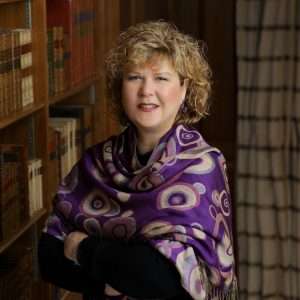
Elizabeth Davis, President, Furman University
“Pivot” is a word we’re using a lot these days. It may not feel like it now, but it wasn’t long ago that COVID-19 was an abstract disease happening halfway
around the world. It has since hit Americans and American culture and business with a force we won’t fully understand for years.
So, we pivot, keeping one foot grounded in our typical worlds—work, school, family and friends—while swinging the other around to adjust to new challenges until we find a toehold to do our work and make connections in the most effective way possible.
Countless times over the past several months, Furman University, like you and your organizations across the Upstate, faced challenges. Like you, we kept one foot in our guiding principles and pivoted the other. Professors figured out how to teach remotely, students adjusted to learning from home, and our staff answered myriad new challenges.
Commencement is possibly the most exciting time at Furman, with numerous ceremonies and traditions that celebrate our graduating seniors. Without students on campus, we were faced with how to make our seniors feel special. We pivoted, and last Saturday I did something I never imagined would happen: I conferred degrees to Furman graduates virtually, through a video we emailed to the Furman community and posted on our website.
It is impressive and encouraging to see others in the Upstate respond so deftly. Prisma Health, our campus medical partner, quickly set up drive-through COVID-19 testing and launched technology to help people determine if they needed to be tested.
Humimic Medical, a Greenville company that recently hired one of our students, switched from producing medical simulation materials to making face shields that nurses and doctors use as part of their protective equipment. Heath Hawkins, a new Furman alumnus and Humimic’s new employee, joined the company in the fall as an intern. Heath pivoted in a major way; he now leads the company’s sales and marketing strategy for its new product.
Danny Merck, superintendent of Pickens County School District and a fellow in The Riley Institute’s Diversity Leaders Initiative, mobilized his food service workers and his school bus drivers to deliver 12,500 meals a week to students far and wide who depend on school for a nutritious meal. In an interview with The Riley Institute, Superintendent Merck reminded everyone that caring for people is every organization’s primary responsibility. “It’s about ‘who,’ not ‘what.’ If you protect the people you hire, they’re always going to be more motivated to serve the people they work with, the students. We have made sure that our plan was not built on the production of the employee, but instead on the well-being of the employee.”
Furman Innovation and Entrepreneurship pivoted, too, moving their popular Summer Business and Entrepreneurship Bootcamp to a virtual format, accommodating 50 students from eight universities across the Southeast. For more than two weeks, students will hear from business leaders and entrepreneurs, engaging in a mentoring program and delivering a capstone project. Thanks to the Greenville Local Development Corporation, more than 10 students will have paid virtual internships with NEXT partner companies following the bootcamp.
I’ve also been inspired by stories of Furman alumni, those who had no choice but to pivot and those who chose to do so despite knowing the dangers that awaited. Anna Downs was a fourth-year medical student in Kentucky who contracted COVID-19 and spent nearly 10 days as a patient. She recently graduated. The CEO of KershawHealth, Sue Shugart, was in her position less than six months when her hospital became ground zero for COVID-19 in the state. Jonathan Davis is an emergency medicine doctor in Georgia, and his friend Ben Daxon is an anesthesiologist at the Mayo Clinic; they each volunteered to work a week in New York City hospitals, caring for patients dying of the virus.
There are countless other examples that make me proud to be the president of Furman and a citizen of the Upstate.
At Furman, we’re working through plans for a safe and successful return to campus in the fall. While none of us knows what the future looks like for our respective organizations, we should all know that we have the skill and talent to figure it out. The pandemic has shown all of us that we can pivot to adjust to whatever challenge comes our way.

Elizabeth Davis, President


 Our volunteers have found additional ways to give back during the outbreak. We have raised funds and collected food for veterans who were affected by the tornado in Oconee County and others who lost their jobs due to COVID-19 pandemic. Our Chapter Communications Director, Laurie Bowen, has been sewing masks for veterans, corrections officers, first responders and healthcare workers free of charge. So far, she has donated over 500 masks and more are available. She plans to distribute additional masks to veterans in need through local VA organizations. We have received donations to our chapter from mask recipients, and many have donated to purchase more materials for additional masks. We have also donated N95 masks to volunteers working the Oconee County tornado recovery efforts.
Our volunteers have found additional ways to give back during the outbreak. We have raised funds and collected food for veterans who were affected by the tornado in Oconee County and others who lost their jobs due to COVID-19 pandemic. Our Chapter Communications Director, Laurie Bowen, has been sewing masks for veterans, corrections officers, first responders and healthcare workers free of charge. So far, she has donated over 500 masks and more are available. She plans to distribute additional masks to veterans in need through local VA organizations. We have received donations to our chapter from mask recipients, and many have donated to purchase more materials for additional masks. We have also donated N95 masks to volunteers working the Oconee County tornado recovery efforts.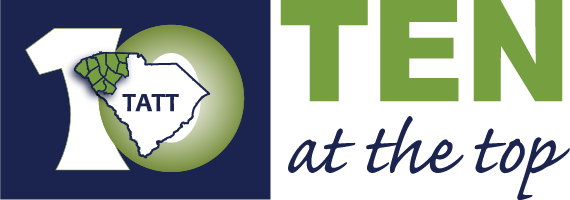


 To date, UWS has awarded a total of $6,235 to eight applicants for the emergency relief fund through Premier Foundation. These funds have provided direct payment of mortgages, utilities, and car repairs for veterans who have been furloughed or are experiencing financial hardship due to COVID-19. 100% of warriors who have applied for the relief fund have received assistance. In addition to our warrior outreach, we have connected with nearly 300 community partners and 650 supporters, assuring them of our continued engagement during this time
To date, UWS has awarded a total of $6,235 to eight applicants for the emergency relief fund through Premier Foundation. These funds have provided direct payment of mortgages, utilities, and car repairs for veterans who have been furloughed or are experiencing financial hardship due to COVID-19. 100% of warriors who have applied for the relief fund have received assistance. In addition to our warrior outreach, we have connected with nearly 300 community partners and 650 supporters, assuring them of our continued engagement during this time





